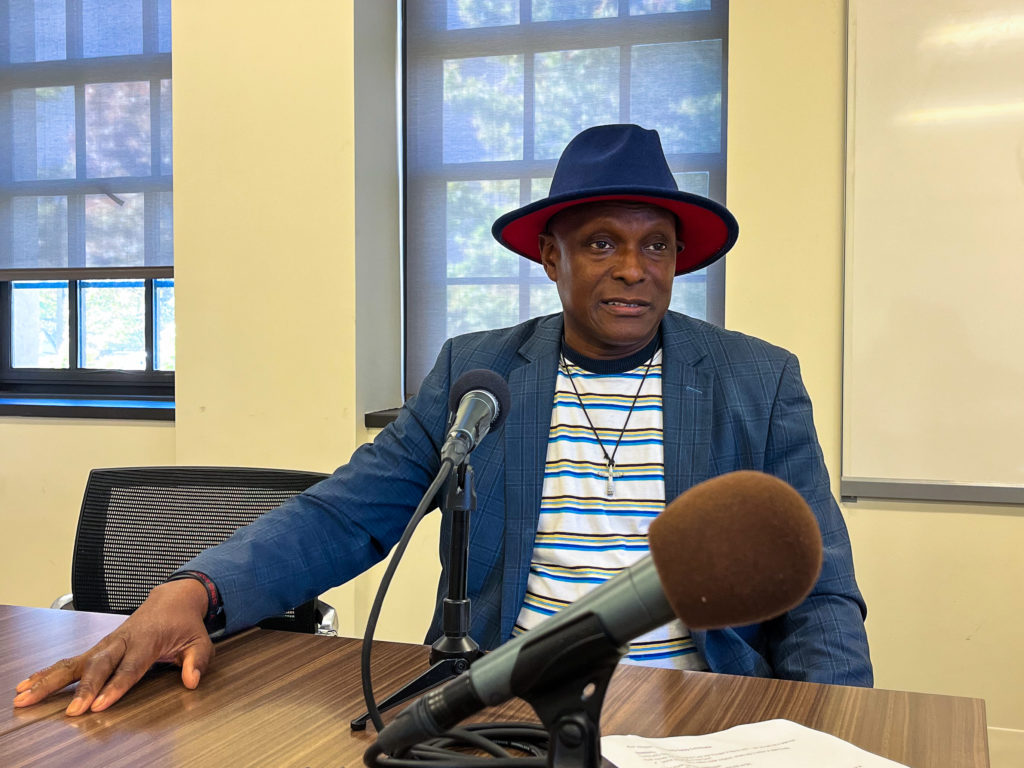
During the summer protests of 2020, activists took to the streets with a message — “We keep us safe.” It was a call to invest more in community-based safety efforts, instead of policing.
The mayor’s office responded by setting aside $2 million for groups that are already doing that work. Though, that money is still dwarfed by the police department’s budget.
But the rollout has been slow — and so far, community groups have only gotten a fraction of the money allocated.
“All of these things take time and takes a lot of planning,” said Ron Johnson, the community safety coordinator for the mayor’s office and a long-time violence interrupter.
The budget for Johnson’s office and for community groups comes out of the same pool of money, and he helps groups apply for the funding.
But when asked what the budget looks like, or how it’s been doled out, Johnson wasn’t sure.
“The exact numbers I don’t know,” Johnson said. “This is just a little too complicated to really just kind of go into. Let’s keep it real simple.”
After the interview, his department didn’t have the numbers on hand. It was only after a records request that a budget breakdown was provided.
It showed that of the $2 million set aside, only about $270,000 has been spent on community groups so far. The Center for Nonprofit Management has also received about $50,000 to work with community safety groups.
A spokesman for the mayor says a total of $1.4 million of the $2 million in funding has been been dedicated to community groups. Much of that remains unspent because groups must submit proof of their expenditures.
18 smaller grants = $90,000 spent
About a third of the spending has been doled out in $5,000 grants.
Some of recipients have clear ties to community safety — like Pass The Beauty, which works with domestic violence survivors, or Nashville Peacemakers, which tries to prevent young people from joining gangs.
Others are a bit less obvious but still work to impact some of the underlying issues that can lead to crime, like hunger or poverty.
Johnson says the groups may have different approaches, but they share the same end goal.
“No one wants to see no one’s child murdered regardless,” Johnson said. “And if we can all start there and agree, that’s where you see good synergy starts to happen and you see change really makes its way into our communities, into the fabric of what we all do.”
5 groups get larger grants = $178,000 spent
Most of the money given out so far has been divided among five organizations.
They include faith-based organization Rocketown, which works with under-resourced youth; Why We Can’t Wait, which works with boys at the Napier Sudekum housing project; and the Raphah Institute, which runs a diversion program with the juvenile court.
Raphah has already gotten $40,000 from the mayor’s office. It’s also up for part of a separate $1.5 million grant administered by the health department. That would go toward launching a violence interruption project in North Nashville, and be split with Gideon’s Army.
“When the rubber hits the road, the people that live there and do the work, they’re going to do the work anyway — whether they get a dollar, whether they get anything,” Johnson says. “They’re going to do the work anyway, because that’s what we’ve always done.”
He says the money isn’t as important as that work. But he does add that it’s important enough to cause some infighting between the city’s different anti-violence groups.
“I really would like to try and find a way to bring groups and organizations who normally hadn’t gotten along because they’ve all been chasing the same — as we say — bag of money,” he said.
That bag of money is still quite full. About $650,000 is still up for grabs.
Corrections: An earlier version of this story misspelled part of the name of a housing project. It’s Napier Sudekum, not Napier Sudekem. The story also misstated the number of groups that received $5,000 grants. Seventeen groups received the small grants; there were 18 grants.
Update: An earlier version of this story did not include information on expenditures by the Center for Nonprofit Management or the total amount that has been allocated through the community safety funding program. Those figures has been added.

